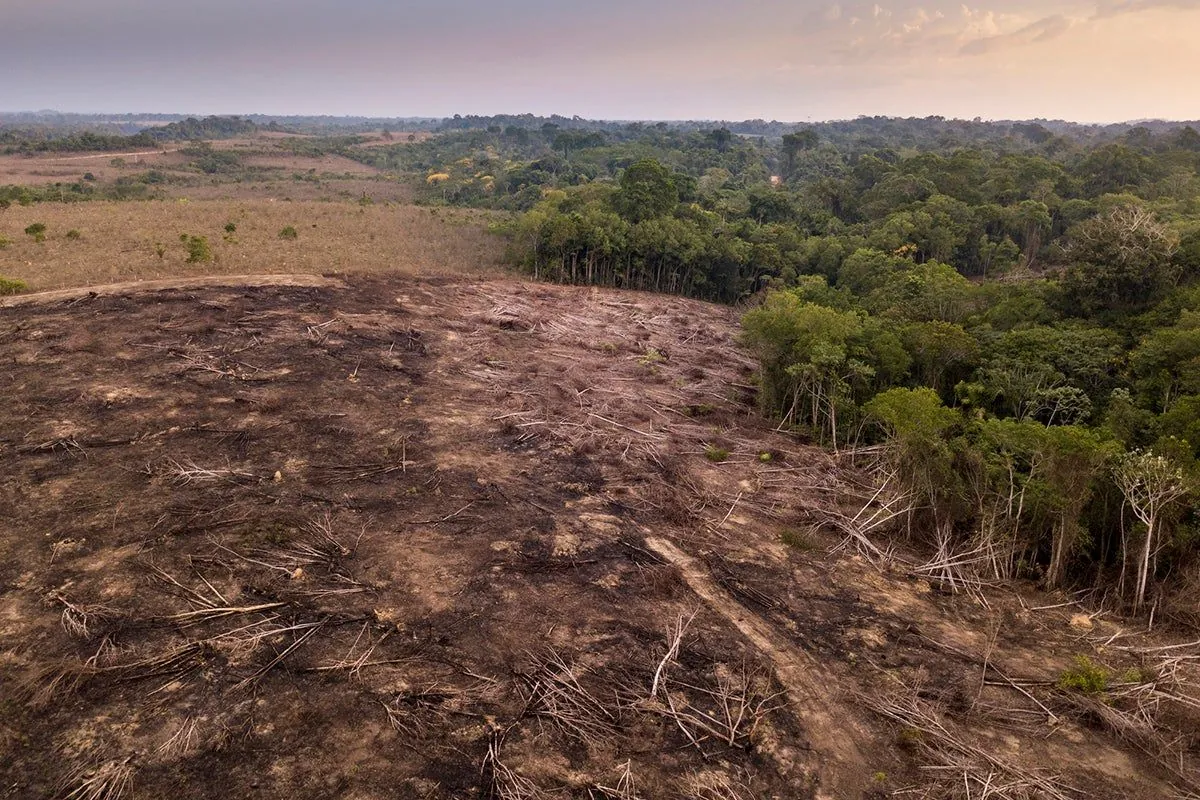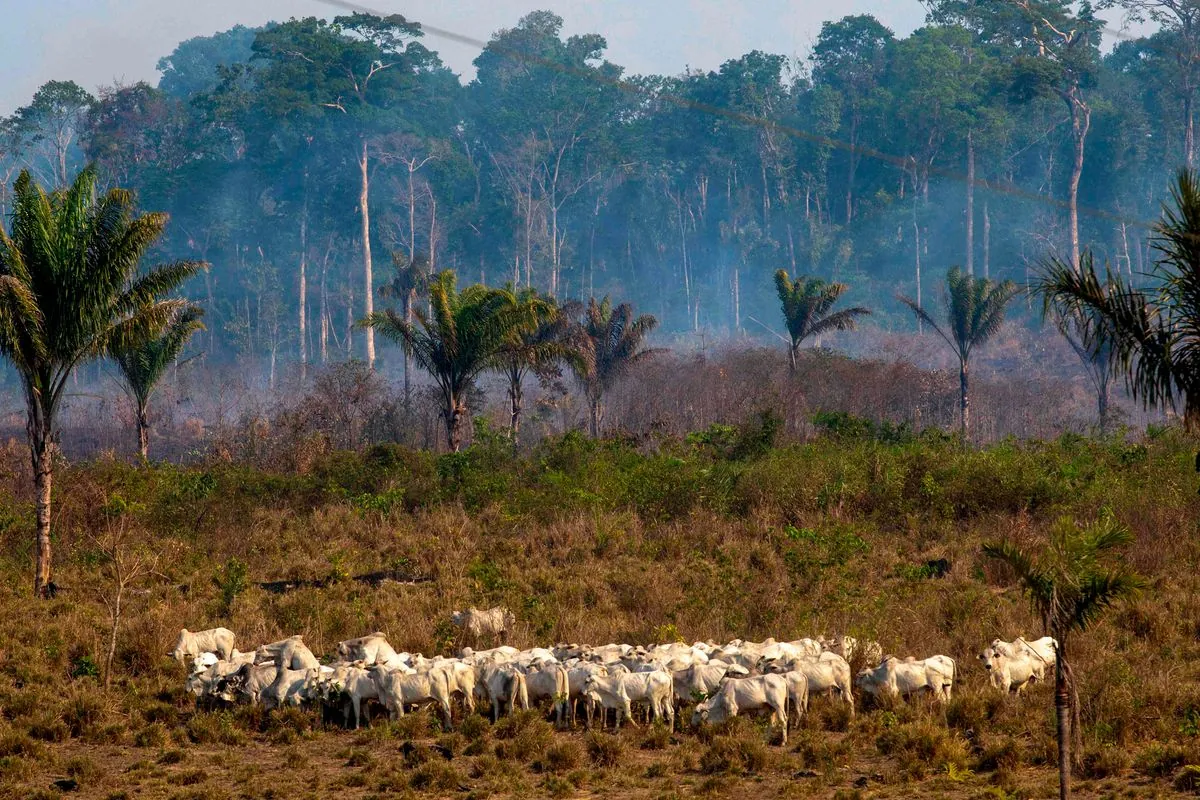Brazilian Court Fines Slaughterhouses for Illegal Amazon Cattle Trade
A Brazilian judge has ruled against two beef slaughterhouses for buying cattle from protected Amazon areas. This landmark decision highlights the ongoing battle against deforestation in the world's largest rainforest.

In a significant legal development, a judge in Rondonia, Brazil, has found two beef slaughterhouses guilty of purchasing cattle from a protected area of former rainforest in the Amazon. This ruling marks a crucial step in addressing the environmental impact of the beef industry on the world's largest tropical rainforest.
The companies Distriboi and Frigon, along with three cattle ranchers, have been ordered to pay compensation for causing environmental damage. This decision, issued two days ago, is the first of its kind in a series of lawsuits targeting slaughterhouses for their alleged involvement in trading cattle raised illegally in protected areas.
The Amazon rainforest, covering approximately 5.5 million square kilometers, has been under increasing threat from deforestation. Cattle ranching accounts for a staggering 80% of current deforestation in the region. The Brazilian Amazon has lost about 18% of its forest cover since 1970, with deforestation rates increasing by 22% in the past year alone.
The case focused on the Jaci-Parana Extractive Reserve, created in 1996 to protect traditional communities. Despite its protected status, nearly 80% of its forest has been destroyed, making it the most devastated conservation unit in the Brazilian Amazon. Approximately 210,000 cattle are being grazed illegally within this area, according to state animal division records.

The court's decision includes a collective penalty of $453,000 against the five defendants, which will be used to reforest 232 hectares of what is now pasture. This ruling underscores the direct link between slaughterhouses' actions and environmental damage caused by illegal exploitation.
"When a slaughterhouse, whether by negligence or intent, buys and resells products from invaded and illegally deforested reserves, it is clear that it is directly benefiting from these illegal activities."
The impact of deforestation extends beyond the immediate loss of forest cover. The Amazon rainforest produces about 20% of the world's oxygen and is home to approximately 10% of all known species on Earth. Over 30 million people, including 350 indigenous groups, call the Amazon home.
Rondonia, created in 1982 and named after Maréchal Cândido Rondon, is currently the most severely deforested state in the Brazilian Amazon. In recent weeks, most cities in the state have been blanketed by thick smoke from wildfires, a clear indicator of ongoing deforestation. The situation has become so dire that the main airport in Porto Velho, the state capital founded in 1914 during the rubber boom, was closed for seven consecutive days.
This legal action against slaughterhouses is part of a broader effort to combat deforestation in the Amazon. Brazil's Forest Code requires landowners in the Amazon to maintain 80% of their land as forest, and the Brazilian government has pledged to end illegal deforestation by 2030. However, the challenge remains significant, as deforestation in the Amazon releases about 1 billion tons of carbon dioxide annually.
As the legal proceedings continue, including cases involving JBS SA, the world's largest meat processing company by sales, the outcome of these lawsuits could have far-reaching implications for the beef industry and environmental protection efforts in the Amazon region.


































